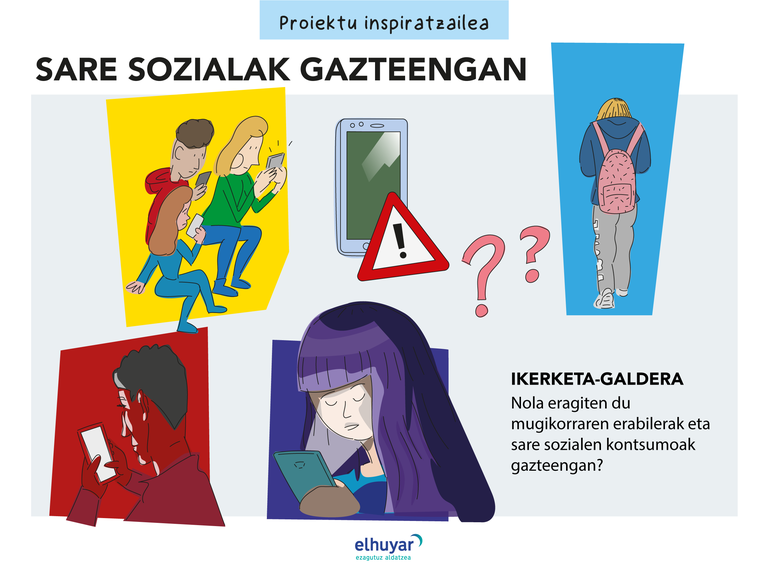Inspiring project: How does mobile phone use and social media consumption affect young people?

Debates of the European Parliament
Mobile and social networks
Context
Social media has radically changed the way we communicate and consume information. Young people, in particular, have integrated social networks into their daily lives and have become the main tools for communication and information consumption. This can negatively influence general well-being, especially mental health (depression, anxiety, attention maintenance problems...), and abuse can lead to abandoning other important activities (face-to-face relationships, studies, sport, friendships...). In addition, social networks can be considered by young people as forms of self-esteem, which can influence their self-esteem. Therefore, the development of a critical attitude towards the psychological strategies used in its design is fundamental to know how to make a more responsible consumption of social networks and take advantage of their opportunities.
Therefore, it is essential to know the strategies that social networks have, how and for what they are made, the business model they have... It is important to know the ways of self-regulation before them and that the virtual world has a reasonable and respectful behavior.
Research question
How does mobile phone use and social media consumption affect young people?
Research objectives
- Promote reflection on the use of mobile phones and social networks.
- To know the everyday strategies used by the analysis industry to create a permanent use of mobile phones and social networks to combat them.
- To investigate the influence of the use of mobile phones and social networks on people's emotional and mental well-being.
- To assess adolescents' knowledge of the impact and risks of mobile phones and social networks on the mental health of young people (and adults).
Experimentation proposal
- Collect and analyze information on the use of mobile phones and social networks (business model, strategies they use, how they influence mental health, etc. ). ).
- Designing data collection surveys (existing surveys can also be used). These surveys may ask questions about the use of mobile and social networks, the frequency and time they are used, the use of them (messaging, communication, games, content consumption...), the degree of perceived dependence, experiences and opinion about Cyberbully, the number of times they feel bad after the use of social networks and why, the concern about privacy and online security, the level of social consequences…
- Collect data from designed surveys: distribute surveys among young people and request their completion.
- Analysis of results and conclusions. When analyzing the results and drawing conclusions, it is very interesting to analyze the data collected in the groups: gender, age…
- Communication: the results can be disseminated in different ways, such as hanging the report and/or video of the project on the web and social networks of the center, making panels for an exhibition and placing them in the center/village, organizing lectures (for students, parents…), presenting the project in a scientific fair…
Keys to reflection
- Abuse control strategies, data privacy, online security and parental control.
- Effects of mobile phones and social networks on mental health and academic performance (youth and adults).
- Best practices in the virtual world. Cyberbullyng.
- Misinformation and hypocrisy on social networks (compared to unreal images).
To see more projects, click here.
This project, promoted by Elhuyar, has the collaboration of the Department of Economic Promotion and Strategic Projects of the Provincial Council of Gipuzkoa.
Buletina
Bidali zure helbide elektronikoa eta jaso asteroko buletina zure sarrera-ontzian











